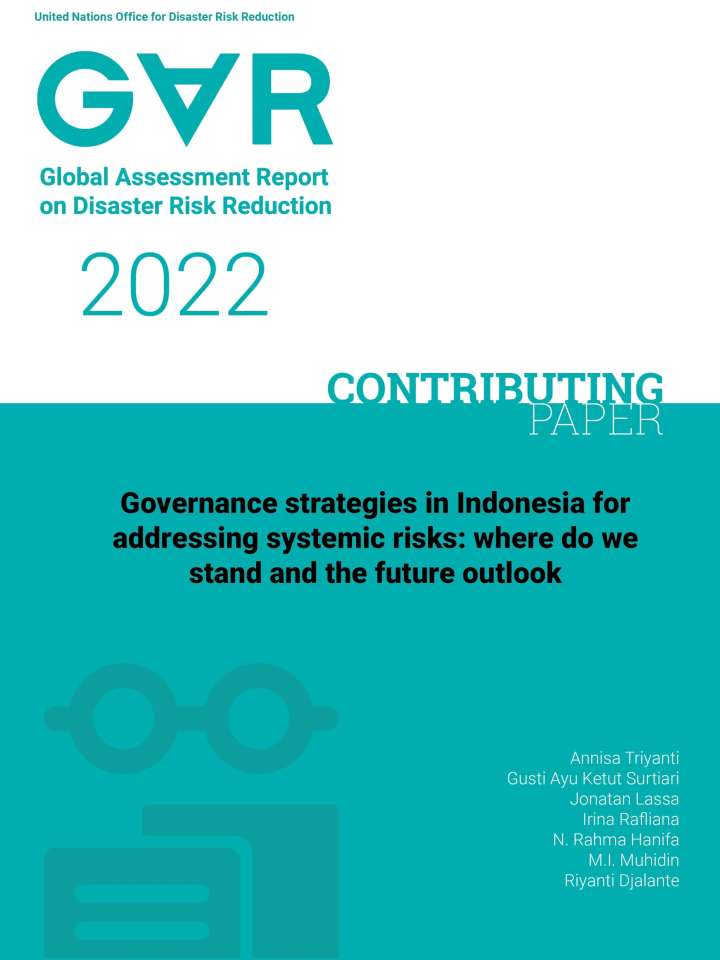Governance strategies in Indonesia for addressing systemic risks: Where do we stand and the future outlook
This contributing paper examines the need to create new governing systems at the local level that allow actors and institutions to simultaneously manage the interplays of single and multi-hazards, multi-temporal, multiple dimensions of vulnerabilities, poverty reduction, unplanned urbanisation, environmental degradation and other residual risks. The unprecedented pandemic COVID-19 has revealed the inability to understand the root causes of risk, and thus it stressed the need to understand how to manage systemic risks at local levels. The study uses the case of from Palu multiple disasters in Central Sulawesi, Indonesia, to demonstrate how inland earthquakes in 2018 create cascading secondary hazards, namely tsunamis, liquefactions and landslides that caused unprecedented disasters.
The study finds that Indonesia has yet to incorporate a systemic risk governance approach through the case of Palu. Political will is required for Indonesia to adopt more appropriate risk governance modes that promote the systemic risk paradigm. A fit for purpose framework contextualised and adjusted to country conditions is needed for further exploration and operationalisation in the policy domain. The study adds that the focus of systemic risk governance should be directed towards productive transition and local transformation although incremental change through hybrid governance arrangement, among other things, is deemed more realistic and feasible for Indonesia.
